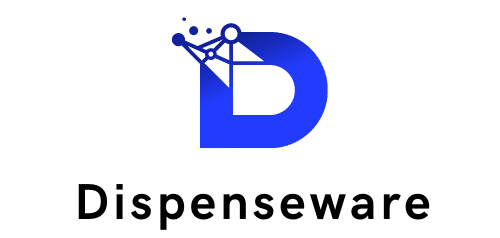The new age of autonomous vehicles (AVs) is upon us. These self-driving cars are poised to redefine the transportation industry and transform the way we perceive mobility. Yet, as with all technological advancements, there come new ethical challenges. This article delves into the profound moral implications of Artificial Intelligence (AI) in autonomous vehicles, touching on the difficulties in programming AVs, safety concerns, data privacy issues and the moral decision-making of these vehicles.
Ethics in Programming Autonomous Vehicles
Autonomous vehicles are powered by complex AI systems which must be programmed to respond to various road situations. This programming of AVs has sparked a vibrant ethical debate. The central question revolves around how these vehicles can and should make moral decisions.
Avez-vous vu cela : Essential services of a video production agency for success
Consider the infamous “trolley problem” – a classic ethical dilemma used in philosophy. In this scenario, the AV must choose between two damaging outcomes. For example, the vehicle, due to unavoidable circumstances, must decide whether to swerve into a pedestrian or crash into a barrier, potentially harming the passengers. How should the AV be programmed to react in such a scenario? Should it prioritize the safety of the passengers or the pedestrian?
The crux of the problem lies in quantifying the value of human life. In the real world, decisions are made in the spur of the moment, often driven by human instinct and emotion. But in the case of AVs, these decisions are pre-determined by a set of rules programmed into the system. This brings us to the question: who should have the control over these life and death decisions?
Lire également : Improve the accessibility of your website with My Image GPT: provide text descriptions for images and graphics
Safety Concerns with Autonomous Vehicles
Apart from ethical decision-making, safety is a paramount concern in the deployment of autonomous vehicles. Despite the advanced technology, accidents involving autonomous cars have been reported. In fact, the first fatal accident occurred back in January 2021, raising questions about the safety of these vehicles.
While it’s true that autonomous vehicles can eliminate human error, they are not immune to malfunction or unpredictable situations. Software glitches, sensor malfunctions, or unforeseen road conditions can lead to accidents. Moreover, autonomous driving systems are vulnerable to hacking and cyber-attacks, which could cause severe safety issues.
In light of these concerns, there’s an ongoing debate on whether the benefits of autonomous vehicles, such as increased mobility for those unable to drive, outweigh the potential safety risks. Part of this debate also revolves around the transparency of the manufacturers in sharing safety data and performance records of their AVs.
Data Privacy and Autonomous Vehicles
Data is the heartbeat of autonomous vehicles. These cars generate and process massive amounts of data every second, monitoring everything from road conditions to passenger behavior. This extensive data collection fuels concerns about privacy and data protection.
The data collected by autonomous vehicles can reveal sensitive information about their users – what routes they take, where they live, work, or spend their leisure time. This information could potentially be exploited for targeted advertising, discriminatory pricing, or even surveillance.
On the issue of data privacy, users of autonomous vehicles need reassurances on how their data is stored, processed, and shared. Companies must be transparent and provide clear guidelines on data management. In addition, regulatory bodies worldwide need to establish robust data protection laws to safeguard the privacy of users.
The Moral Decision-Making of Autonomous Vehicles
The moral decision-making of autonomous vehicles is perhaps the most complex and debated ethical aspect of AVs. AI in autonomous vehicles must be programmed to make decisions that could have moral implications, such as deciding which lives to prioritize in an unavoidable crash scenario.
This moral decision-making in AVs is complicated by the lack of universally accepted moral principles. Different cultures, societies, and individuals have varying moral values and ethical norms. So, whose ethics should autonomous vehicles follow?
Furthermore, there’s the issue of responsibility in the event of an accident. If an autonomous vehicle makes a decision that leads to harm or damage, who is to blame? Is it the manufacturer, the AI developer, the vehicle owner, or the vehicle itself?
The answers to these questions are complex and multifaceted, underscoring the need for comprehensive ethical guidelines and regulations for autonomous vehicles.
The ethical implications of AI in autonomous vehicles are far-reaching and complex. They touch upon our deepest moral values and challenge our established norms. As we drive towards an autonomous future, these are the ethical issues that manufacturers, regulators, and society at large need to address.
The Role of Machine Learning in Ethical Decision Making
Machine learning, a subset of artificial intelligence, plays a critical role in the operation and decision making of autonomous vehicles. It is the technological backbone that enables these vehicles to learn from their experiences and adapt their responses over time.
However, this capability also presents several ethical challenges. As autonomous vehicles learn from their environment, they continually adjust their reactions to various situations. Thus, there is a potential for these responses to deviate from the original programming. It raises the question: How can we ensure that the autonomous vehicle adheres to ethical considerations while also allowing it to learn and improve?
The “trolley problem” that emerges in the programming of autonomous vehicles also extends to machine learning. While the initial programming might follow a defined set of rules, the continuous learning process could result in the vehicle making decisions that were not initially anticipated by the programmers. This brings to light another question: If an autonomous vehicle, through machine learning, makes a decision resulting in harm, who should be held responsible?
These complexities underline the need for robust ethical guidelines in the programming and machine learning process of autonomous vehicles. These guidelines should also include mechanisms for monitoring and rectifying any deviations in the decision-making process of the autonomous vehicle.
Ethical Dilemmas in the Future of Autonomous Driving
Looking ahead, the ethical dilemmas associated with autonomous vehicles are bound to evolve as the technology matures. Currently, the focus is mainly on the “trolley problem” and the safety concerns. However, the ethical landscape could shift as new scenarios, challenges, and considerations arise.
For instance, as more autonomous cars hit the roads, there’s a possibility of them communicating and coordinating with each other to improve traffic flow. This could involve making collective decisions that prioritize the greater good over individual passengers. Such a scenario introduces a new layer of ethical considerations.
Moreover, with the progressive sophistication of AI, autonomous vehicles might begin to exhibit emergent behaviors – actions that were not explicitly programmed but arise from the vehicle’s interaction with its environment. These behaviours could present unforeseen ethical challenges.
Addressing these potential future ethical dilemmas requires forward-thinking and proactive measures. Regulators, manufacturers, and society at large need to anticipate these challenges and develop comprehensive ethical frameworks for autonomous driving.
Conclusion: Navigating the Ethical Roadmap of Autonomous Vehicles
The role of artificial intelligence in autonomous vehicles presents a labyrinth of ethical concerns and moral dilemmas. From programming and safety to data privacy and moral decision making, every aspect of autonomous driving brings with it profound ethical considerations.
While the challenges are significant, they’re not insurmountable. The key lies in developing comprehensive ethical frameworks that guide the development and deployment of autonomous vehicles. Transparent and responsible data handling, robust safety standards, and a universally acceptable decision-making algorithm are some of the critical components of these frameworks.
Additionally, the evolving nature of these ethical challenges necessitates a dynamic approach to ethics in autonomous driving. As we step further into this era of autonomous vehicles, we should be prepared to continually reassess and refine our ethical guidelines in response to new ethical dilemmas that might arise.
Ultimately, the journey towards a future dominated by autonomous vehicles is as much an ethical journey as it is a technological one. As we cruise forward, it is crucial to steer clear of the ethical pitfalls and ensure that this transformative technology is harnessed for the greater good of society.






